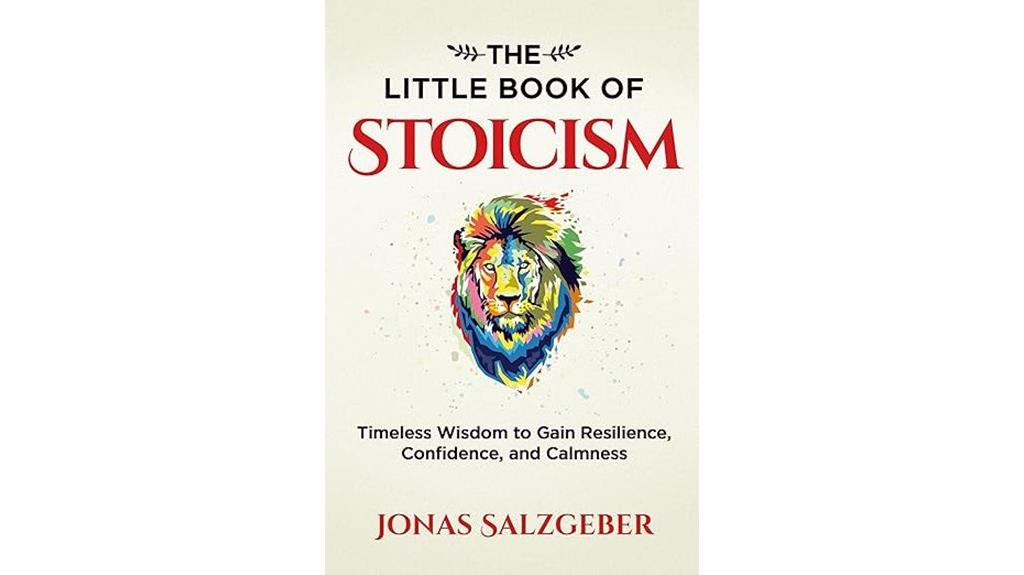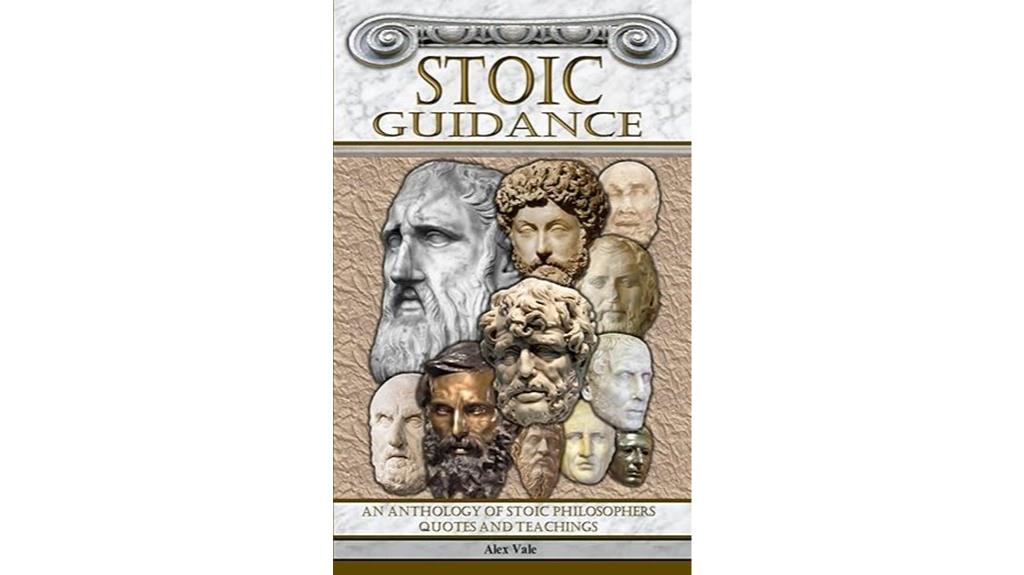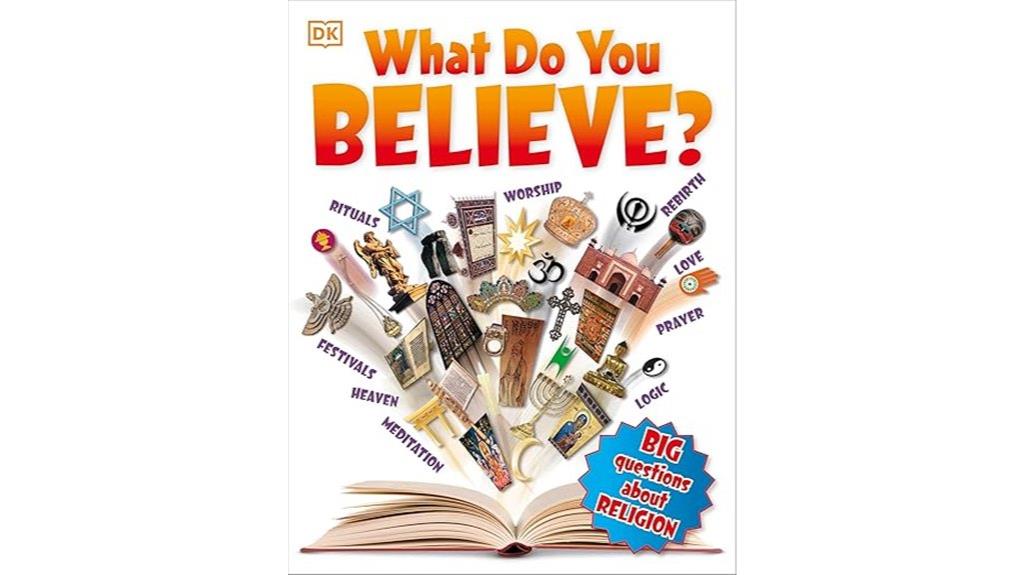Table of Contents Show
There may be products. Products are independently selected by our editors. We may earn an affiliate commission from the links with no charge to you, example: as Amazon Affiliate.
We’ve found three philosophy books perfect for sparking meaningful discussions while remaining beginner-friendly. The Little Book of Stoicism offers practical wisdom for daily challenges and emotional resilience. Stoic Guidance provides a balanced introduction to ancient philosophy with modern applications. What Do You Believe? explores world religions through an unbiased lens, making complex beliefs accessible. These selections will help you navigate profound conversations and reveal deeper understanding of life’s big questions.
Key Takeaways
- “The Little Book of Stoicism” presents complex philosophical concepts in an accessible format while providing practical applications for daily life.
- “Stoic Guidance” offers a balanced introduction combining philosophical depth with actionable wisdom through organized biographies, quotes, and teachings.
- “What Do You Believe?” explores diverse belief systems neutrally, making it ideal for sparking family discussions about religion and philosophy.
- All three books prioritize clear writing styles and avoid academic jargon, making philosophical concepts approachable for beginners.
- These books connect abstract theories to real-world situations, encouraging readers to reflect deeply on personal growth and decision-making.
The Little Book of Stoicism: Wisdom for Resilience and Calmness

Newcomers to Stoicism will find an accessible gateway in “The Little Book of Stoicism: Wisdom for Resilience and Calmness.” This concise guide breaks down complex philosophical principles into digestible insights, making it an ideal starting point for readers seeking practical wisdom.
We’ve seen how readers apply its teachings during life’s challenges, from career hurdles to personal crises. While some find the philosophy section lengthy before reaching practical applications, the book’s strength lies in its actionable advice for emotional regulation and decision-making. Whether you’re facing adversity or simply want to become a better person, this guide offers a solid foundation in Stoic principles for modern living.
Best For: Individuals seeking an approachable introduction to Stoic philosophy with practical applications for managing daily stress and personal growth.
Pros:
- Presents complex Stoic concepts in an accessible, easy-to-understand format
- Provides actionable advice for applying Stoic principles to modern life
- Effectively helps readers develop emotional resilience and better decision-making skills
Cons:
- Philosophy section may feel too lengthy before reaching practical applications
- Contains some repetitive content that might frustrate advanced readers
- Could benefit from a more concise format for easier reference
Stoic Guidance: An Anthology of Stoic Philosophers, Quotes and Teachings

Those who want a balanced introduction to Stoic philosophy will find tremendous value in “Stoic Guidance: An Anthology of Stoic Philosophers, Quotes and Teachings.” Alex Vale’s anthology masterfully combines philosophical depth with practical wisdom, making complex Stoic concepts digestible through a well-organized structure of biographies, quotes, and real-world applications.
Built around the four Stoic virtues, the book offers actionable guidance while maintaining historical context. While some sections can be dense, we appreciate its accessibility for beginners. It’s an excellent starting point for anyone seeking resilience and moral clarity, though readers wanting deeper theoretical discussions may need supplementary materials.
Best For: Newcomers to Stoicism seeking a structured introduction to the philosophy’s core concepts, key figures, and practical applications in modern life.
Pros:
- Well-organized structure combining historical context, philosophical teachings, and practical applications
- Accessible writing style that makes complex concepts digestible for beginners
- Effective integration of the four Stoic virtues with actionable guidance for daily life
Cons:
- Some sections contain overly detailed historical information that may distract from core philosophical concepts
- Writing could be simplified further to enhance comprehension for complete beginners
- Lacks depth in theoretical discussions for readers seeking advanced philosophical analysis
What Do You Believe?: Big Questions About Religion

Parents and educators seeking an unbiased introduction to world religions will find exceptional value in “What Do You Believe?: Big Questions About Religion.” While many religious texts aim to promote specific beliefs, this book stands out for its academic, neutral approach to exploring diverse faiths and philosophical questions.
Written by an author with extensive background in religious studies and education, this accessible guide presents complex concepts in digestible chapters for readers age 7 and up. We appreciate how it tackles challenging topics like religion and violence, science, and atheism while maintaining respectful neutrality. Though its philosophical discussions could be deeper, it’s an excellent starting point for families wanting to explore religious literacy together.
Best For: Parents and educators seeking an unbiased, age-appropriate introduction to world religions for children ages 7 and up.
Pros:
- Well-organized and digestible presentation of complex religious concepts
- Maintains neutral, academic approach while covering diverse belief systems
- Includes practical teaching aids and discussion prompts for family engagement
Cons:
- Philosophical discussions lack sufficient depth and context
- Coverage of atheism and agnosticism could be more comprehensive
- Limited introduction to key philosophers mentioned in the text
Factors to Consider When Choosing Philosophy Books Perfect for Starting Meaningful Conversations
When we’re looking for philosophy books that spark great discussions, we need to contemplate factors beyond just the topic itself. We want books that balance accessibility for different reader backgrounds with sufficient depth, while offering clear connections to modern life and cultural issues we face today. The most discussion-worthy philosophy books feature engaging writing that draws readers in, making complex ideas relatable while maintaining intellectual rigor and practical applications.
Accessibility for Diverse Audiences
Many philosophy books can feel intimidating or inaccessible to readers from diverse backgrounds, which is why selecting the right texts is essential for starting meaningful conversations. We recommend choosing books that feature clear, structured content with simple writing styles that avoid excessive jargon. Look for texts that connect philosophical concepts to practical, real-world applications, making abstract ideas more relatable for everyone.
We’ve found that books incorporating diverse philosopher biographies and carefully selected quotes help readers see themselves represented in philosophical discourse. The best texts maintain a neutral, nonjudgmental tone that welcomes different perspectives and belief systems. When philosophical works are presented in an organized, approachable manner, they create inclusive spaces for meaningful discussions where everyone feels comfortable sharing their thoughts and insights.
Practical Real-World Applications
Philosophy books with real-world applications bridge the gap between abstract theories and everyday life. We recommend choosing books that offer practical guidance for handling daily challenges, from emotional regulation to complex decision-making. Look for texts that combine theoretical frameworks with actionable steps you can implement immediately.
When selecting philosophy books, we prioritize those that include relatable examples and scenarios that mirror real situations you might encounter. The best choices often feature structured approaches that balance profound concepts with practical exercises, encouraging active engagement with the material. We find that books promoting self-reflection and personal growth naturally spark meaningful discussions, as readers can connect philosophical principles to their own experiences. This approach makes abstract concepts more accessible and relevant to our daily interactions with others.
Engaging Writing Style
How a philosophical text communicates its ideas can make or break its effectiveness for sparking discussions. We recommend looking for books that employ an accessible, engaging writing style that doesn’t sacrifice depth for simplicity. The best conversation starters often feature short, well-structured chapters that allow us to digest complex concepts at a comfortable pace.
When evaluating a book’s writing style, we want clear, straightforward explanations that avoid unnecessary academic jargon. Look for authors who weave compelling narratives alongside their theoretical exploration, helping us form emotional connections with the material. Importantly, the writing should bridge abstract concepts with everyday experiences through relatable examples. This approach not only enhances our understanding but also gives us natural entry points for meaningful discussions with others.
Cultural Relevance Today
When exploring philosophy books that spark meaningful conversations, cultural relevance stands as a crucial factor in our selection process. We need works that address today’s pressing challenges like emotional resilience and moral clarity in our complex world. Let’s look for books that translate sophisticated philosophical concepts into practical wisdom we can apply to our daily lives.
The best selections will embrace diverse cultural perspectives and beliefs, helping us build bridges of understanding in our increasingly connected society. We’ll want texts that connect historical philosophical developments to contemporary issues, making ancient wisdom relevant to modern challenges. Most importantly, we should choose works that encourage critical thinking and self-reflection, empowering us to develop and articulate our own views in today’s pluralistic world.
Depth of Topic Coverage
Building on our cultural considerations, the depth of topic coverage emerges as a key factor in selecting thought-provoking philosophy books. We look for works that offer extensive overviews of fundamental concepts while connecting them to modern life’s challenges. The best books weave historical context with philosophical teachings, helping us understand how ideas have evolved and remain relevant today.
We’ll want to guarantee our chosen books balance theoretical frameworks with practical applications, making complex ideas accessible and relatable. When evaluating depth, we check if the book includes diverse perspectives and incorporates meaningful quotes from influential thinkers. These elements create natural launching points for rich discussions and personal reflection. We also prioritize books that encourage critical thinking, as this skill is essential for engaging in meaningful philosophical dialogue.
Conclusion
We’ve explored three powerful doorways into philosophical thinking that can transform casual chats into meaningful exchanges. Whether we’re seeking ancient wisdom through Stoicism or tackling life’s biggest questions about faith, these beginner-friendly reads will equip us with the tools to dive deeper. Let’s embrace these thought-provoking works, for in sharing ideas and questioning together, we grow wiser with every conversation.









